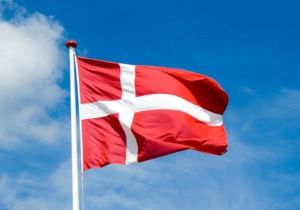News
Denmark doesn’t have an official constitution day … and here’s why
This article is more than 7 years old.
A football game in 1985 came about as close as national celebrations ever get

They love their flag … but why no national day? (photo: Pixabay)
The US has July 4, Norway has May 17, Russia has December 12.
Constitution day is a big deal in most countries around the world, with the public taking part in nationwide celebrations to mark some form of independence. But Denmark doesn’t really do that.
You might not realise it, but today is actually Grundlovsdag (Constitution Day) in Denmark – making it one of just two countries in the world, along with the the UK, which doesn’t have an official national day.
It is true that some folk are off work today, but there are no barbeques, flag-waving marches or firework displays that other countries use to mark their national days.
And here’s the reason, according to DR Nyheder.
READ MORE: Denmark to celebrate its constitution
No drama
As a nation, Denmark has never been occupied or colonised by other countries for a long period of time, so there’s no independence day – as is the case in the UK.
Furthermore, aside from south Jutland’s unification with Denmark in 1920, Denmark hasn’t been part of any large unification process, such as with Germany or Vietnam, to mention two examples.
Thirdly, Denmark hasn’t really endured any significant revolutions, such as was the case with France or China.
“It’s not unrealistic that we will get a national day – I think that Grundlovsdag will become the official national day,” Peter Yding Brunbech, a Danish historian, told DR Nyheder.
“I think that it’s never become an official national day because it’s still political. From the very beginning, Grundlovsdag became a day for political statements, which means it’s been politicised and not a natural time for a national day of celebration.”
1985 came close
In fact, perhaps the closest Denmark came to really collectively celebrating its Constitution Day was on 5 June 1985, when the national football team beat the Soviet Union 4-2 in a World Cup qualifier in Copenhagen – on what is considered one of the most important sporting moments in Danish history.
For now, however, June 5 simply marks the day when Denmark signed its constitution back in 1849. There’s no big party. There’s no togetherness. There’s no solidarity. The Danes don’t even have any national costume.
Is there something missing? Ah well, they’ll always have that day in 1985.










































